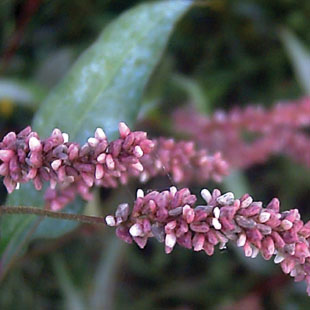 PARENTAL MEMORIES: Spotted lady’s thumb plants whose parents survived drought conditions are more hardy, perhaps due to DNA methylation patterns.WIKIMEDIA COMMONS/JAVIER MARTIN
PARENTAL MEMORIES: Spotted lady’s thumb plants whose parents survived drought conditions are more hardy, perhaps due to DNA methylation patterns.WIKIMEDIA COMMONS/JAVIER MARTIN
The paper J.J. Herman, S.E. Sultan, “DNA methylation mediates genetic variation for adaptive transgenerational plasticity,” Proc R Soc B, doi:10.1098/rspb.2016.0988, 2016. Conventional Wisdom The notion that organisms pass down adaptations acquired during their lifetimes to their offspring was overturned long ago by Darwinian evolution. But the concept is getting a second chance, with more nuance. Growing evidence shows that a parent’s environment sometimes does influence offspring, though the underlying process is something of a black box. Growing up Hard Sonia Sultan and Jacob Herman of Wesleyan University in Middletown, Connecticut, peeked into that box with experiments on a small flowering annual, Polygonum persicaria. They grew some plants in dry soil and other plants in normal soil, then raised offspring from all plants in dry soil. ...



















